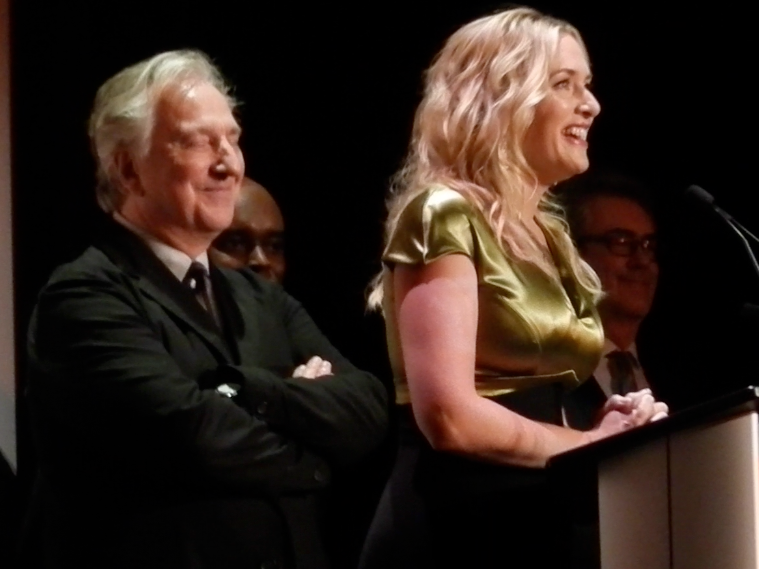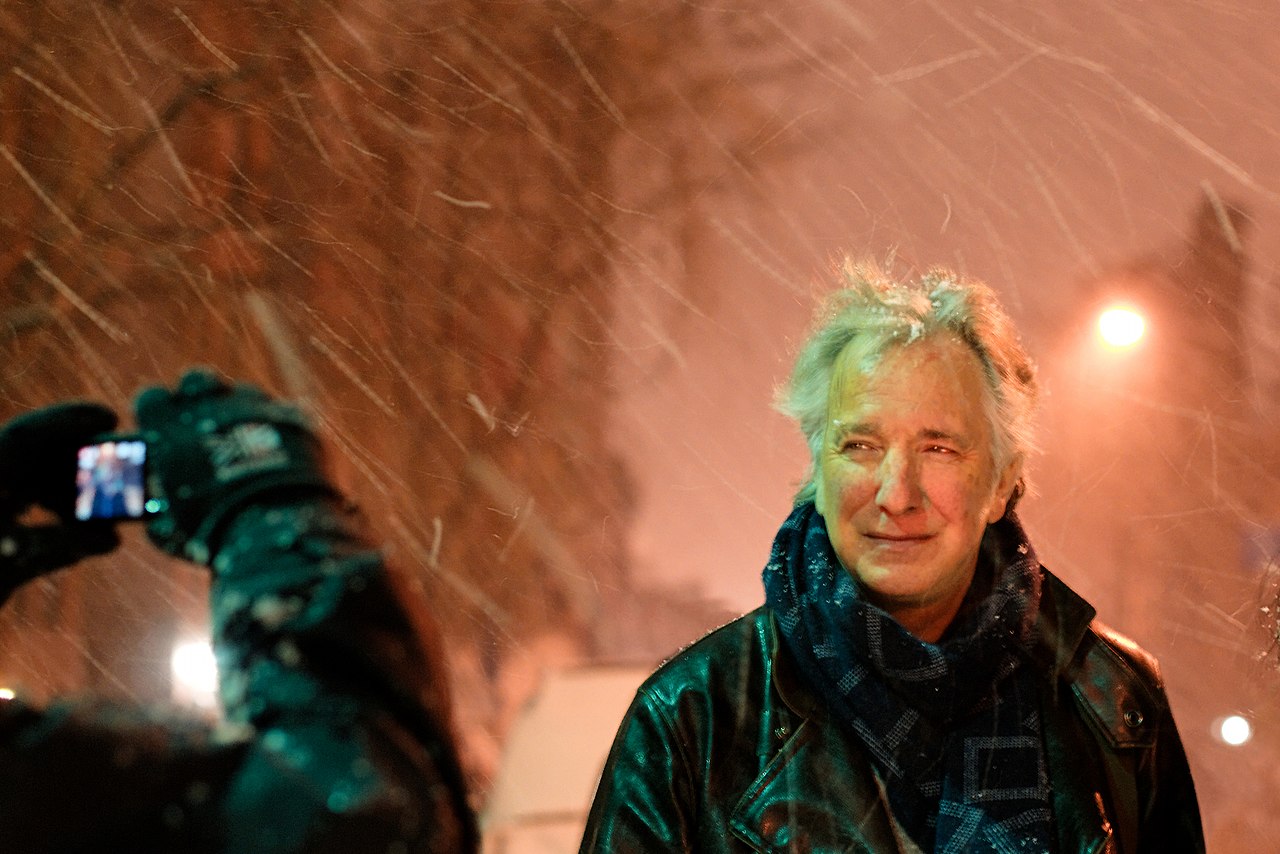Alan Rickman
Alan Rickman

Alan Sidney Patrick Rickman, born on February 21, 1946, was an English actor and director celebrated for his distinctive deep voice and versatile performances. Trained at the Royal Academy of Dramatic Art (RADA) in London, he became a member of the prestigious Royal Shakespeare Company (RSC), showcasing his talents in both modern and classical theater productions. One of his notable stage roles was as the Vicomte de Valmont in the RSC production of Les Liaisons Dangereuses in 1985, earning him a Tony Award nomination after the production moved to the West End and Broadway.
Rickman's film career skyrocketed with his iconic portrayal of the German terrorist leader Hans Gruber in Die Hard (1988). He won the BAFTA Award for Best Actor in a Supporting Role for his performance as the Sheriff of Nottingham in Robin Hood: Prince of Thieves (1991). His talents earned critical acclaim in films like Truly, Madly, Deeply (1991), An Awfully Big Adventure (1995), Sense and Sensibility (1995), and Michael Collins (1996). He is perhaps best known for his role as Severus Snape in the Harry Potter series (2001–2011).
Beyond his memorable film roles, Rickman directed films such as The Winter Guest (1997) and A Little Chaos (2014). On television, he made a mark with roles like Tybalt in Romeo and Juliet (1978) and Obadiah Slope in The Barchester Chronicles (1982). His portrayal of Grigori Rasputin in Rasputin: Dark Servant of Destiny (1996) earned him prestigious awards including a Primetime Emmy, a Golden Globe, and a Screen Actors Guild Award.
Despite his immense talent, Rickman never received an Academy Award nomination, a fact lamented by many in the industry. He passed away on January 14, 2016, at the age of 69, after battling pancreatic cancer.
Alan Sidney Patrick Rickman was born on February 21, 1946, in the Acton district of London, to Margaret Doreen Rose (née Bartlett) and Bernard William Rickman. His mother was Welsh, and his paternal grandmother was Irish. Raised in a Catholic household, Rickman had two brothers, David and Michael, and a sister, Sheila.
Rickman's distinctive voice, characterized by its deep tone and languid delivery, was partly due to a tight jaw he was born with. His father passed away when he was eight years old, leaving his mother to raise him and his siblings alone. The family faced financial struggles, and they were rehoused by the council to an estate in Acton.
Despite the challenges, Rickman showed early artistic talent, excelling in calligraphy and watercolor painting as a child. He attended various schools in Acton and later studied at Chelsea College of Art and Design and the Royal College of Art, where he initially pursued graphic design. However, after working in the field for several years, he decided to pursue acting professionally.
Rickman auditioned for and attended the Royal Academy of Dramatic Art (RADA) from 1972 to 1974, supporting himself by working as a dresser for renowned actors Nigel Hawthorne and Ralph Richardson during his studies. This marked the beginning of his journey to becoming one of Britain's most revered actors.

After completing his studies at RADA, Alan Rickman immersed himself in the British theater scene, collaborating with various repertory and experimental theater groups. He appeared in productions such as Chekhov's "The Seagull" and Snoo Wilson's "The Grass Widow" at the prestigious Royal Court Theatre. Rickman's talent and dedication to his craft led to three appearances at the esteemed Edinburgh International Festival.
In 1978, Rickman joined the Court Drama Group, where he showcased his versatility by landing roles in classics like "Romeo and Juliet" and "A View from the Bridge," among others. His association with the Royal Shakespeare Company (RSC) further solidified his reputation as a formidable stage actor. During his time with the RSC, Rickman portrayed Jaques in "As You Like It" and shared insights into his acting process in an essay included in the RSC's publication "Players of Shakespeare 2."
However, it was his breakthrough role as the Reverend Obadiah Slope in the BBC's adaptation of Anthony Trollope's "The Barchester Chronicles" in 1982 that truly catapulted Rickman into the spotlight, showcasing his exceptional talent and earning him widespread acclaim.
In 1985, Alan Rickman was cast in the male lead role of the Vicomte de Valmont in the Royal Shakespeare Company's production of Christopher Hampton's adaptation of "Les Liaisons Dangereuses," directed by Howard Davies. This production garnered widespread praise, showcasing Rickman's remarkable talent on stage.
Following the success of the RSC production, "Les Liaisons Dangereuses" transferred to the West End in 1986 and then to Broadway in 1987. Rickman's stellar performance earned him both a Tony Award nomination and a Drama Desk Award nomination, solidifying his reputation as a formidable stage actor.
In 1988, Rickman made his feature film debut in the action thriller "Die Hard," portraying the iconic antagonist Hans Gruber opposite Bruce Willis. Despite initial hesitations about taking on the role, Rickman's portrayal received critical acclaim, earning him recognition as one of the greatest villains in film history. His performance as Hans Gruber secured him a spot on the American Film Institute's list of 100 greatest movie villains, cementing his status as a versatile and talented actor.
In 1990, Alan Rickman took on the role of the Australian character Elliot Marston in "Quigley Down Under," starring opposite Tom Selleck. The following year, he portrayed the Sheriff of Nottingham in Kevin Reynolds's adaptation of "Robin Hood: Prince of Thieves," starring alongside Kevin Costner and Morgan Freeman. Rickman's performance as the Sheriff garnered widespread acclaim, with Entertainment Weekly highlighting his portrayal as the summer's most talked-about performance. For this role, Rickman received the BAFTA Award for Best Actor in a Supporting Role, acknowledging his ability to bring depth and complexity to villainous characters.
Despite his success in villainous roles, Rickman was determined to showcase his versatility as an actor and break away from being typecast. He began taking on leading roles, such as the enigmatic character "Man" in "Closet Land" (1991) and the romantic lead Jamie in "Truly, Madly, Deeply" (1991), directed by Anthony Minghella. His performance in "Truly, Madly, Deeply" earned him critical acclaim and another BAFTA Award nomination, demonstrating his ability to convey warmth and sensitivity on screen.

References
- Singer, Leigh (19 February 2009). "Oscars: the best actors never to have been nominated". The Guardian. UK. Retrieved 17 September 2022.
- ^ "Alan Rickman, Harry Potter and Die Hard actor, dies aged 69". BBC News. 14 January 2016. Archived from the original on 20 November 2016. Retrieved 20 November 2016.
- a b Saul, Heather (15 January 2016). "Alan Rickman: British actor died from 'pancreatic cancer'". The Independent. Archived from the original on 15 January 2016. Retrieved 23 November 2018.
- ^ "Alan Rickman, actor – obituary". The Daily Telegraph. Archived from the original on 10 January 2022. Retrieved 8 March 2020.
- ^ Profile Archived 26 October 2015 at the Wayback Machine, biography.com. Retrieved 14 January 2016
- a b c d e f Paton, Maureen (1996). Alan Rickman: the unauthorised biography. London: Virgin. ISBN 978-1852276300.
- ^ "Alan Rickman & Helen McCrory: 'With us it's mostly about laughter and the odd Martini'". The Independent. Retrieved 16 January 2020






































